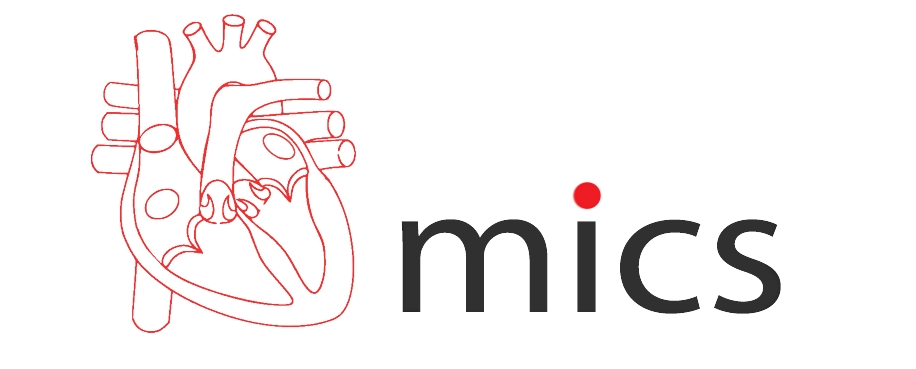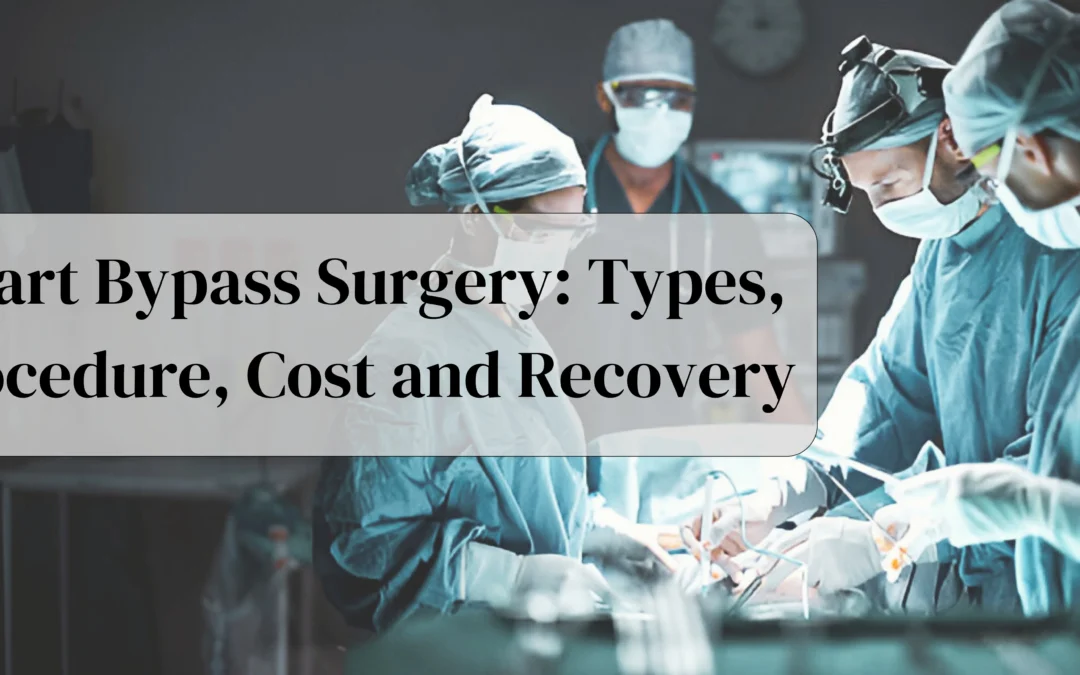Heart bypass surgery, or coronary artery bypass grafting (CABG), is a life-saving procedure for those with severe coronary heart disease. This surgery restores normal blood flow to the heart, greatly improving quality of life. In India, where cardiovascular diseases are on the rise, understanding heart bypass surgery is crucial. For patients and their families, knowing the details of this surgery can lead to renewed health and peace of mind. Join us in this blog as we explore the significance and impact of heart bypass surgery.
What is Heart Bypass Surgery?
Heart bypass surgery, or coronary artery bypass grafting (CABG), is a procedure designed to improve blood flow to the heart. Surgeons use blood vessels taken from another part of the body to bypass blocked or narrowed coronary arteries. This allows oxygen-rich blood to reach the heart muscle, reducing the risk of heart attacks and improving overall heart function. CABG is one of the most common and effective treatments for severe coronary artery disease, offering patients a new lease on life.
Conditions Leading to Heart Bypass Surgery
Several conditions can necessitate heart bypass surgery. The most common is coronary artery disease (CAD), which occurs when the coronary arteries become narrowed or blocked due to the buildup of plaque—a combination of fat, cholesterol, and other substances. Factors contributing to CAD include high blood pressure, high cholesterol, smoking, diabetes, obesity, and a sedentary lifestyle. When CAD is severe, it can significantly restrict blood flow to the heart, leading to angina (chest pain) or even heart attacks. Other conditions that may require bypass surgery include:
- Severe blockages in multiple coronary arteries.
- Blockages that cannot be treated with less invasive procedures like angioplasty.
- A failed previous angioplasty or stent placement.
- Severe heart valve disease requiring simultaneous correction.
Symptoms Indicating the Need for Surgery
- Chest Pain (Angina): Persistent chest pain or discomfort, often described as pressure, squeezing, or fullness, can signal that the heart muscle isn’t getting enough oxygen-rich blood. This pain may also radiate to the shoulders, arms, neck, jaw, or back.
- Shortness of Breath: Difficulty breathing or shortness of breath during activities that were once easy can be a sign of reduced blood flow to the heart.
- Fatigue: Unusual or extreme tiredness, even after mild exertion, can indicate the heart is struggling to pump enough blood to meet the body’s needs.
- Heart Attack: Symptoms of a heart attack, such as intense chest pain, shortness of breath, sweating, nausea, and light-headedness, require immediate medical attention and can lead to a diagnosis of severe coronary artery disease.
- Palpitations: Irregular heartbeats or palpitations can also indicate underlying heart issues that might necessitate surgery.
Surgical approaches for By-pass Surgery
- Open Heart Approach: A traditional surgery where the chest is opened to access the heart, often requiring the use of a heart-lung machine to maintain circulation during the procedure.
- Minimally Invasive: Surgery performed through small incisions using specialized instruments, reducing recovery time and minimizing trauma compared to open surgery.
- Robot-Assisted Minimally Invasive: Surgeons use robotic systems to perform minimally invasive procedures with enhanced precision and control, improving outcomes and reducing recovery times.
- Robotic (Totally Endoscopic): A fully robotic approach where the surgery is conducted entirely through small incisions without the need for large cuts, using advanced robotic technology for optimal precision and minimal invasiveness.
Types of Heart Bypass Surgery
- Single bypass surgery: One blocked artery requires one bypass graft to reroute blood flow around the blockage.
- Double bypass surgery: Two blocked arteries necessitate two grafts to restore proper blood flow to the heart.
- Triple bypass surgery: Three blocked arteries need three grafts to bypass the obstructions and ensure adequate blood supply.
- Quadruple bypass surgery: Four blocked arteries call for four grafts to address multiple blockages and maintain heart function.
- Quintuple bypass surgery: Involves all five major heart arteries being blocked, requiring five grafts to bypass the obstructions and ensure optimal blood circulation.
The Procedure of Heart Bypass Surgery
- Anesthesia: General anesthesia is administered.
- Incision: A cut is made in the chest to access the heart.
- Harvesting the Graft: Surgeons take a healthy blood vessel from the leg, arm, or chest.
- Creating the Bypass: The graft is attached above and below the blocked artery, rerouting blood flow.
Cost of Heart Bypass Surgery
- Costs vary based on the type of surgery, hospital, surgeon’s expertise, and location. In India, the cost ranges from INR 1.5 lakh to INR 5 lakh.
- While the cost in India is relatively lower compared to Western countries, it can still be significant for many families.
Recovery after Heart Bypass Surgery
- Immediate Post-Surgery Care: Patients receive intensive care in the ICU for several days to monitor heart function, breathing, and overall health closely.
- Hospital Stay and Monitoring: Typically, patients remain in the hospital for about a week, gradually increasing mobility and engaging in light activities as they recover.
- At-Home Care Instructions: Following discharge, patients must adhere to a strict regimen, including wound care, medication management, and gradually increasing physical activity under guidance.
- Follow-Up Appointments: Regular visits with the cardiac surgeon and cardiologist are essential for monitoring recovery progress and detecting any complications early on.
Conclusion
In conclusion, while traditional heart bypass surgery remains an important option, exploring minimally invasive alternatives like Minimally Invasive Cardiac Surgery (MICS) can offer faster recovery and better outcomes. For those interested in learning more about MICS and its benefits, I strongly recommend visiting the website of the Minimally Invasive Cardiac Surgery program https://www.micsheart.com. With over 15 years of experience and a commitment to patient satisfaction, they’re pioneers in the field, making heart surgery a less disruptive and more comfortable experience. Take the next step towards your heart health journey by visiting their website today.

